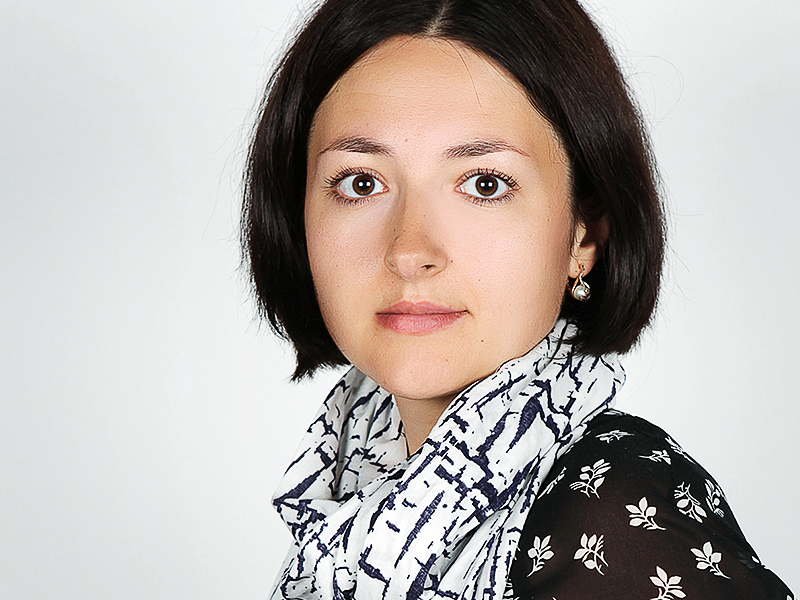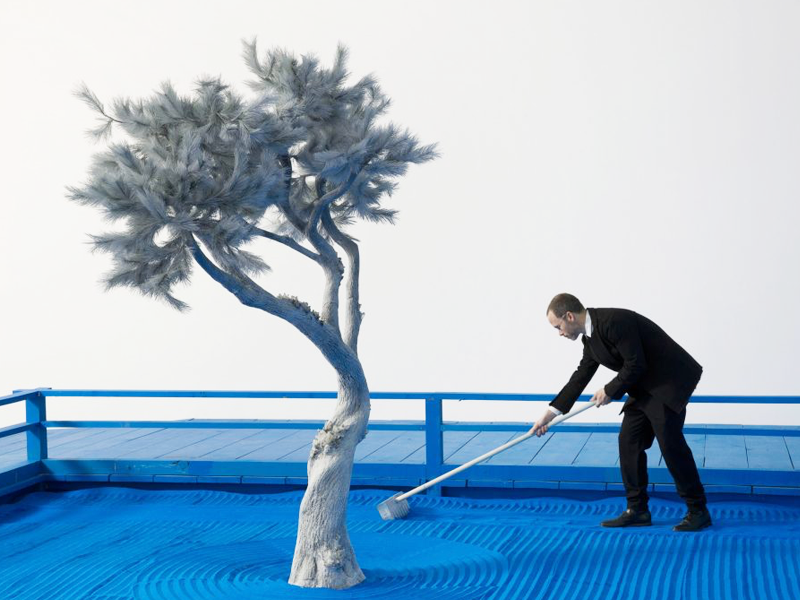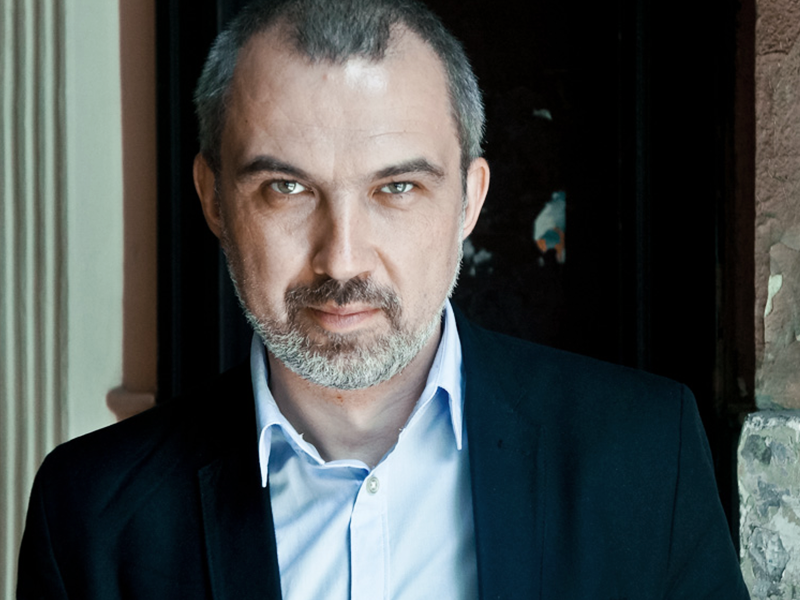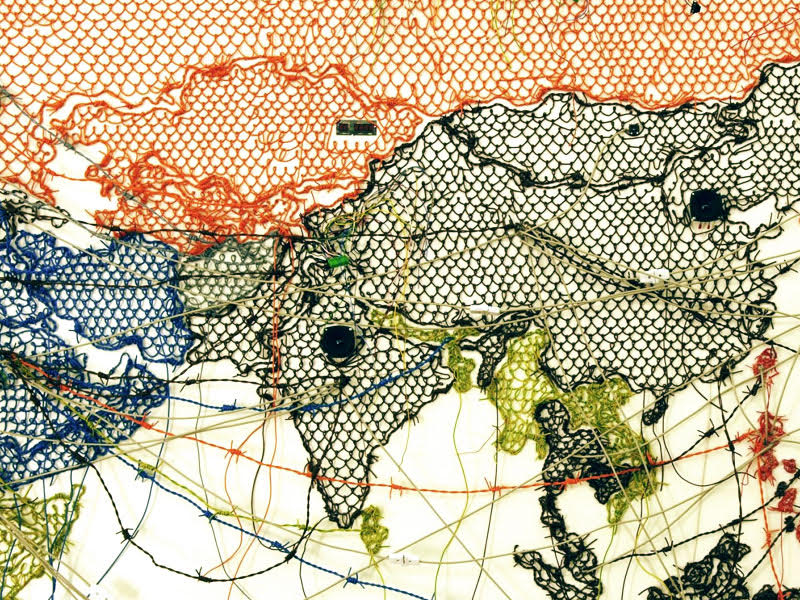
Yuliya Fediv: We need to change our vision from “Ukraine in Europe” to “Europe in Ukraine”
You had worked on projects with the Ukrainian Centre for Cultural Studies before Iryna Vikyrchak left as head of the Creative Europe Desk. Was that the reason for the Ministry of Culture to appoint you to the post without announcing a new competition?
In last year’s competition for the post of the head of the Creative Europe Desk, which Iryna Vikyrchak won, I came second. The UCCS offered me to work with them, and my work consisted of carrying out studies on cultural and creative industries, preparing materials on-demand and conducting events.
After Iryna had stepped down, I received a call from the ministry and was invited for an interview, during which I was asked whether I was ready to take the post of head of the Desk in Ukraine. And since I already had experience in this field, I agreed.
Having already worked with the UCCS, you were, of course, aware of certain difficulties in the Desk’s work, which included lack of travel budgets and staff. Which systemic problems have already been overcome, and which remain to be overcome?
Creative Europe is run by the Ukrainian Centre for Cultural Studies and, accordingly, there is no separate budget for it. In reality, the Desk’s budget is the budget of a UCCS project. We have a budget this year to organise three events. Unfortunately, that’s all for now.
But there is the notion of “partner mapping” in project management. At the time, I have mapped the partners in the cultural, creative and audio-visual sectors — among them are representatives of state bodies, local governments, NGOs and the business sector. An important partner in this structure is the Culture and Creativity Programme, which has already managed to produce a large volume of informational material.
As for funds for business trips, if you have a map of partners, and you have a plan of your events and those of your partners, you just look where they overlap. For example, now the Delegation of the European Union and the Association4You, an EU-funded project, are carrying out a number of information events throughout the entire territory of Ukraine about EU programmes which cover the travel costs of the representatives of various programmes. I have an opportunity to join them and travel within the framework of this programme.
Obviously, the need to seek funds for business trips requires a lot of time and effort, but for now, this is how it works. From my experience working with state bodies (not just the Ministry of Culture), I can say that these are, unfortunately, the realities of our State. You just need to work on changing them.

Can you tell me about the activities planned for this year?
In summer, during the Odessa Film Festival, a practical workshop will be held on writing proposals and project implementation with the participation of Czech experts. This event will be paid for with UCCS funds.
In autumn, we are planning to hold a fair of successful projects since four Ukrainian organisations have obtained financing. We want to invite representatives from other countries and present their successful cases. So that organisations preparing their applications can talk to winners and discuss important issues.
Are you planning to increase the staff of the Desk [Currently, only one person works at the Creative Europe Desk Ukraine—author’s note]? After all, this is now possible following the recent reform at the UCCS.
Yes, now, by agreement with the UCCS, I, as head of the Desk, can employ two persons. I already have two candidates, one of them worked as a PR manager and the other as an event manager. They both started working in April, at first for free, but in the future, they will work as full-time employees for a salary.
How would you assess the Desk’s first year of work? Which key goals have been achieved, and what, in your opinion, could not be achieved?
After talking to Iryna Vikyrchak, I understood that informing about the programme was the main goal that she had set for herself for the Desk’s first year of work. And she fulfilled it. Unfortunately, this is the only thing that has been done thus far. A significant part of representatives of the Ukrainian governmental and non-governmental sectors have learned that such a programme existed, that there was an opportunity to apply for their projects. However, in the process of communicating with organisations and representative of local governments, I realised that while the cultural and creative sectors were more informed, the media sector was not sufficiently informed. Perhaps, this has to do with the fact that the Media sub-programme is only just being opened up (currently there are only four channels). But now there is a need not for general information, but for step-by-step instructions, how to write proposals and what to look out for. Because last year there were many applications, but just four were successful.
When analysing the comments from the programme Desk in Brussels, it becomes clear that in Ukrainian applications innovative approaches, sustainable development and understanding the European context are the weak components. We often get hung up on our problems and believe that the project is about learning something in Europe. Unfortunately, this is not the case, and this should be conveyed to organisations. They should be integrated into Europe, including in terms of their mindset. We need to change our vision from “Ukraine in Europe” to “Europe in Ukraine”.
Also, we still lack practical knowledge. But of course, this takes time.
Another important goal that was not achieved in the past year (or, perhaps, this goal was not set) is to create an English-language database of representatives of the Ukrainian cultural, creative and audio-visual industries for foreigners. So that foreign partners could learn more about the Ukrainian context and could see with whom they can work on joint projects in Ukraine. Every day, we receive many such enquiries from organisations in other countries. Unfortunately, there is no such database yet. Even the Ministry of Culture, which should create such a database at least in the Ukrainian language, does not have one. We are working on it now.
Another area (for now funds are being sought for it because there are none within the confines of the programme) is the creation of an online database. This is how it works in other countries: you can search for partners online in different sectors and domains, and this really helps in networking. Until now, this has been happening through personal connections, sporadically and unsystematically.
Therefore, we now need to work simultaneously on two fronts: the Ukrainian one to increase the level of awareness and acquire new knowledge, and the European one, to inform about the Ukrainian context in various sectors.

The first wave of applications was in December 2016. What conclusions did you draw? What are the skills of Ukrainian cultural managers that are at a good level, and what skills are still lacking?
If you look at the statistics, a total of 25 organisations applied to projects in the European cooperation programme, both as main partners and co-applicants. The subjects of applications included a contemporary theatre with a social focus, music projects, multidisciplinary projects, educational projects, protection of cultural heritage.
As I have already said, four applications were successful. The winners are the Ivan Honchar Museum, the Nova Viziya women’s charity fund, the Tustan museum and fortress, and the CityMaking project.
What is worth noting as a positive thing is an innovative approach. In fact, innovation is inherent in many projects. Also, understanding the context and their own project in it (this too is very important). This can be seen from the descriptions of the projects, the goals and objectives set, etc.
Of course, there are problems with budgeting, namely with identifying the expenditure and revenue of projects in budgets. In particular, in matters of covering their own contributions. Ukrainian organisations are not used to the fact that it is possible to receive grants and, at the same time, to create commercially viable projects. But the main feature of Creative Europe is giving a chance to projects that have the potential to become financially viable.
We understand that financial management, sustainable development and working with the audience are the areas which Ukrainian organisations from the cultural and creative sector have yet to work on.
In early June, we plan to hold a working session for organisations that submitted applications and to carry out an analysis. After that, we will hold another meeting for those who are just planning to submit their applications in order to share this experience. We also directly consult those projects that applied but were not successful. In addition, we have now launched an information campaign on Facebook and our web page where we talk about successful cases to inform cultural and creative organisation about the themes and formats of projects that may suitable for application to Creative Europe.
What are the upcoming open calls for this year that Ukrainian cultural and creative organisations can take part in?
There are now many changes taking place in the structure of Creative Europe, particularly in allocating the budget for different domains. In June, in Malta, the general meeting of all Creative Europe country desks will be held. There, we will learn about future dates for submitting applications (we will certainly share them). It is already clear that there will be certain delays this year, and most calls will take place in autumn and maybe even next winter. On the other hand, cultural and creative organisations have plenty of time to prepare and submit their applications.
The cultural heritage protection will be a priority for 2018, therefore, within the framework of the "international cooperation projects" contest, in addition to supporting of small-scale and large-scale projects, we plan a separate direction for supporting the projects of cultural heritage protection. In early June, an open call for literary translations will be announced.
Furthermore, several calls are planned for the summer, but Ukraine will not be taking part because they are for the Media sub-programme, in which our participation is limited. This has to do with Ukrainian legislation that does not comply with the Directive of the European Parliament and Council of 2010 on the audio-visual sector. Accordingly, we will be able to join the Media sub-programme fully only by adopting the law on the audio-visual industries.
If this only hinges on the adoption of one law, why hasn’t this been done yet?
Unfortunately, in our country, legislative processes take a very long time. Such issues have to be “talked out”. Moreover, Ukraine, unfortunately, wants to combine into one law the Law on the National Council for Television and Radio Broadcasting and the bill "On Audio-visual Services", although they are separate in other countries. Here, the law is 300 pages long. Of course, the media community understands that a 300-page long document undoubtedly contains some pitfalls. Thus, these laws should be separate, but there’s no consensus on this issue yet.
Incidentally, the next Kyiv Media Week, which will take place in autumn, will be devoted to changes in legislation in the audio-visual sector. We are preparing a panel on Creative Europe: within its framework, five heads of country desks, where similar legislative changes were adopted, will talk about the benefits such changes would bring Ukraine.

What are the goals you have set yourself, as head of the Desk, for next year? What will the best result of your work be?
The first goal is creating a database, and inform European partners to the maximum about the Ukrainian context. If the number of partnerships between Ukrainian and European cultural and creative industries increases (not only as part of Creative Europe), this will already be an achievement.
The next domain is holding practical workshops with foreign experts. If we hold 10 to 20 workshops, this will also be a great result. A big goal is creating a pool of coaches in cultural management.
Another mega goal is increasing the number of applications from Ukrainian organisations and the number of successful applications next year. This year it was four applications, if next year it is 10, that would be great.
What are the opportunities offered by the programme that you think cultural and creative managers should pay particular attention to?
The interdisciplinarity of projects, so that organisations do not just get hung up on culture or media. Because every project has to resolve, by way of culture, pressing social and economic problems in society. Therefore, it is important to bring together representatives from different industries and sectors so that they establish relationships.
It is also very important not to forget about the business component. More business forums about culture and creativity should be held so that people understand the extent to which cultural and creative industries can change the economic potential of a country.
To what extent do they change it? What is, in your opinion, the importance of this sector?
Today, the whole world is moving into a new era, where the industry will no longer be the main budget-forming sector. The most intellectual potential of a nation is that which bring profits and contributes to its development. And a key component of intellectual potential is critical thinking, and cultural and creative industries contribute to its development. Thus, the economic basis, together with intellectual capabilities, create the concept of the creative economy.
What should the governments do to develop their cultural and creative industries?
Firstly, ensure an equal approach to all players. Public-private partnerships need to be developed and in all sectors. If there is communication between the state and non-state sectors, and business and the media are involved, then success can be built on these four “elephants”. The ultimate goal is Ukraine’s development. And this development is possible thanks to the cultural and creative industries.




